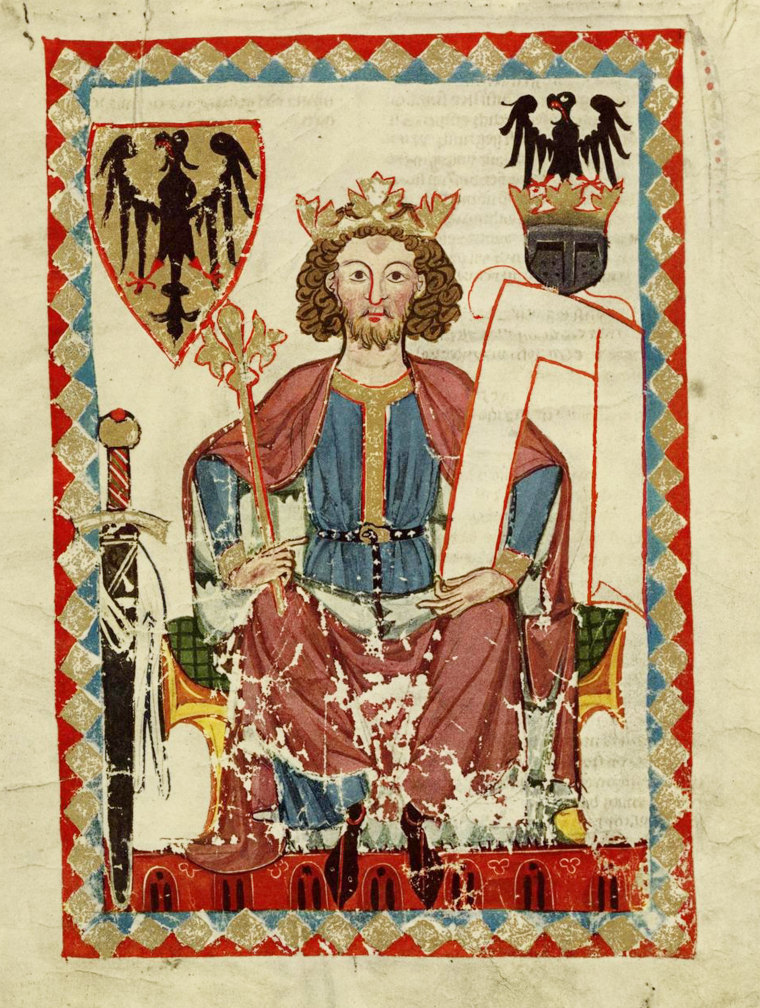Germany has been a republic for more than 100 years and is now the most powerful democracy in Europe. It has no actual princes or kings, but as with many other former monarchies across Europe, some aristocrats with hereditary royal titles choose to still use them.
Heinrich XIII, 71, belongs to the House of Reuss, an ancient royal lineage that ruled parts of what is now Thuringia in central Germany for hundreds of years until 1918. It is now one of Germany’s 16 federal states.
Reuss is just one of the many branches of German royalty, many of which have familial links across the rest of Europe, including to the British royal family.
In an eccentric quirk dating back to the 12th century, male heirs to the Reuss throne are all called Heinrich, followed by a number. This is in tribute to Heinrich VI, who reigned as the king of Germany and Holy Roman Emperor until his death in 1197.

Heinrich was arrested at his home in an upmarket district of Frankfurt on Wednesday.
According to a report in a local newspaper, Ostthüringer Zeitung, police also searched his hunting lodge, a small neo-Gothic castle near the town of Bad Lobenstein in Thuringia, originally built in the 19th century for his ancestor Heinrich LXXII.
NBC News has not verified the reports.
Heinrich may claim the hereditary title, but the House of Reuss is less than pleased with him.
Heinrich XIV, a distant relative who acts as the head of the house and its spokesman, told the German broadcaster MRD on Wednesday he was shocked by the news and that he hadn’t spoken to Heinrich XIII for a decade.
“Of course it rubs off catastrophically on the family,” he said “I believe we’ve been a tolerant, cosmopolitan dynasty for 850 years in eastern Thuringia and now we are all around the world, all the way to America, [we’re] ‘terrorists’ and ‘reactionaries’ — it’s really horrible.”
Heinrich XIII, arrested Wednesday wearing a green blazer, brown trousers, blue shirt and a colored silk scarf, is described in German media profiles as an entrepreneur. His personal website vaguely says he offers “coordination of business interests.”
He is accused of contacting representatives of the Russian Federation both in Russia and in Germany in the hope of winning support for the overthrow of the Berlin government, though prosecutors said that there was no evidence Moscow officials reacted positively to the request.
The House of Reuss disowned Heinrich XIII even before Wednesday’s arrest. In August, the house distanced itself from his views, with Heinrich XIV describing him as a “confused old man” who “is now caught up in conspiracy theory misconceptions.”
It’s those views which are now under intense scrutiny.
In short, Heinrich XIII argues that Germany as we know it doesn’t exist.
Should a coup attempt eventually happen — and German authorities say they are expecting more arrests in the coming days — it would not be the first attempt to force a return to Germany’s imperial past.
The Kapp Putsch, or coup, in 1920 tried but failed to overthrow the government in Berlin its supporters saw as illegitimate. More than 100 years on, that feeling is very much alive among some right-wing conspiracists in Germany.
Delivering a rambling speech titled “Why blue-blooded elite became servants,” at the World Web Forum in Zurich, Switzerland, in 2019, Heinrich presented a rose-tinted picture of monarchical Germany at the end of World War I.
“If something wasn’t going well, you just went to the prince,” he said. “Who are you supposed to turn to today? Your parliamentarian, the local, federal or E.U. level? Good luck!”
He argued that his family was unjustly deposed, before citing an antisemitic conspiracy theory about the role of Jewish bankers in the removal of European kingdoms.
Summing up the Reichsbürger credo, he said: “Ever since Germany surrendered on May 8, 1945, it has never been sovereign again. It was made into an administrative structure of the Allies… a vassal state.”
With some historical symmetry, Heinrich’s arrest came almost 100 years after the Beer Hall Putsch, a failed coup by Hitler’s Nazi Party in Munich on Nov. 8-9, 1923.
Hitler failed and was imprisoned for five years, a period in which he wrote his manifesto-cum-memoir “Mein Kampf.” But it helped bring the Nazis to wider public attention and laid the ground for what was to come.
Source: | This article originally belongs to Nbcnews.com











